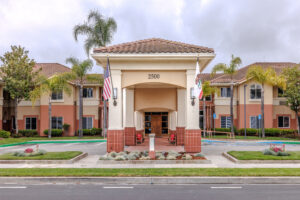Many older adults rely on family members — often spouses or adult children — to provide care as they age. However, research indicates that a growing number of U.S. older adults are unmarried and do not have children.
In fact, a recent study found that nearly a quarter of people older than 65 either do not have children or are not in contact with their children. In addition, approximately 16 percent of women ages 80 to 84 are expected to be childless by 2030.
If you are single and do not have children, what are some steps you can take to plan for care in your later years?
Keep Social Connections Active
Even if you don’t have children, you likely have a network of people who care about you, including friends, extended family members, neighbors, former classmates or work colleagues. Make an effort to stay engaged with others and maintain relationships. Just as you lend a hand to others, the people in your life will reach out to you should you need assistance as you age.
Don’t Delay Planning
No one enjoys thinking about getting older, but you gain an advantage by planning ahead. While you are still active and independent, take time to formulate your strategy for the future. Consider the living arrangements you want and how you will get assistance if you need it.
Appoint a Personal ‘Board of Directors’
As part of your planning, choose a few professionals with whom you can establish long-term relationships. Your personal “board of directors” should include an attorney specializing in elder law, a financial planner, a trusted doctor, and a relative or close friend. Your attorney will help you create important documents, which will ensure your wishes are implemented should a relative or close friend need to make decisions on your behalf.
Make Use of Evolving Technologies
Current and future technologies will provide a wide range of services to older adults. For example, you can use apps to access transportation options, food delivery, non-emergency doctor’s appointments, and more. Medication reminders, monitoring devices and other in-home technology options can assist people who live alone.
Consider Age-Friendly Housing Options
When you choose to move to a senior living community, you gain access to a variety of supportive services and amenities, nutritious meals, security, and health care when you need it. Elder Care Alliance communities are committed to encouraging holistic wellness, including nurturing of the body, mind and spirit. In addition, a range of activities and social opportunities ensure that you need never feel isolated or lonely.
If you are single and don’t have children, you may worry about your care in your later years. By planning now, maintaining relationships with friends and extended family, putting together a trusted professional team, using relevant technologies, and considering your living options, you are taking important steps toward ensuring your future well-being.
Source: The Villa at San Mateo




















